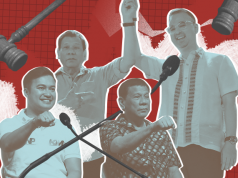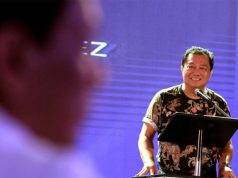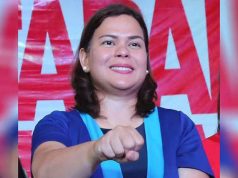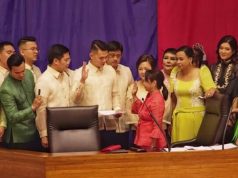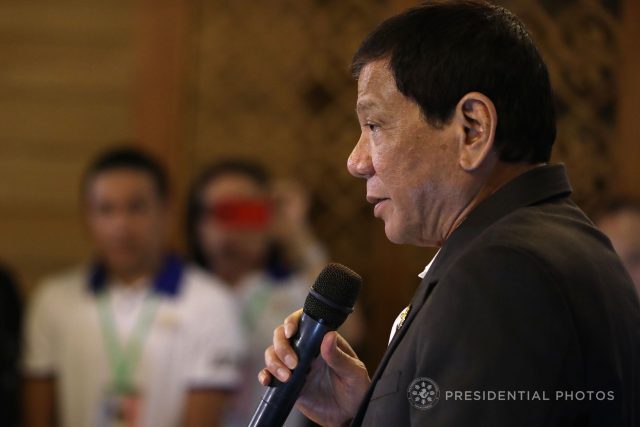
MANILA, Philippines – While hailing its passage as “a major breakthrough in the legislative history,” President Rodrigo Duterte rejected several items in the newly-signed Tax Reform for Acceleration and Inclusion (TRAIN) Act.
In his veto message, a copy of which was sent to Speaker Pantaleon Alvarez, the President said the TRAIN will not only ease the burden of the individual income tax payers by lowering the rates, it will also provide for additional resources “that we will use to fund the social and economic infrastructure that will benefit the poor.”
However, he identified five items that he said were the subject of his veto power as chief executive. These are:
• Earmarking of incremental tobacco taxes.
Veto in lines 20 to 29 of Section 82, which said that “The incremental revenues from the Tobacco taxes under this act shall be subject to Section 3 of Republic Act No. 1717 (An Act to Promote the Development of the Farmer in the Virginia Tobacco Producing Provinces) and Section 8 of the National Internal Revenue Code.
According to Duterte, the provision “effectively amends Republic Act 10351 or the Sin Tax Law, which provides for guaranteed funds for universal health care.”
“The provision will effectively diminish the share of the health sector in the proposed allocation,” the veto message said.
• Exemption of various petroleum products from excise tax when used as input, feedstock, or as raw material in the manufacturing of petrochemical products, or in the refining of petroleum products, or as replacement fuel for natural gas fired combined cycle power plants.
Veto in line 25 of Section 43 of the law.
“The provision runs the risk of being too general covering all types of petroleum products, which may be subject to abuse by taxpayers, and thus lead to massive revenue erosion. At any rate, the tax code already identifies which petroleum products can be exempted,” the President said.
• Exemption from percentage tax of gross sales/receipts not exceeding P500,000.
Veto in line 2 of Section 38 of the law, which said that “Beginning January 1, 2019, self-employed and professionals with total annual gross sales and/or gross receipts not exceeding P500,000.”
Duterte said that proposed exemption from percentage tax will result in “unnecessary erosion of revenues and would lead to abuse and leakages.”
“The subject taxpayers under this provision are already exempted from VAT (value added tax), thus, the lower three percent percentage tax on gross sales or gross receipts is considered as their fair share in contributing to the revenue base of the country.
• Zero-rating of sales of goods and services to separate customs territory and tourism enterprise zones.
Veto in Sections 31 and 33 of the law.
The President said the provisions go against the principle of limiting the VAT zero-rating to direct exporters. The proliferation of separate customs territories, which include buildings, creates significant leakages in the tax system, making it “highly inequitable and significantly reduces the revenues that could be better used for the poor.”
• Reduced income tax rate of employees of Regional Headquarters, Regional Operating Headquarters, Offshore Banking Units and Petroleum Service Contractors and Subcontractors.
Veto in Section 6 of the law that effectively maintains the special tax rate of 15 percent of gross income for the said employees.
“The provision is violative of the Equal Protection Clause under Section 1, Article III of the 1987 Constitution, as well as the rule of equity and uniformity in the application of the burden of taxation,” Duterte said.
“Given the significant reduction in the personal income tax, the employees of these firms should follow the regular tax rates applicable to other individual taxpayers,” he added.
The TRAIN bill is the first tax reform package approved under the Duterte administration. It reduces the rate of individual income taxpayers, but at the same time, increases the excise tax on fuel products, sweetened beverages and brand-new vehicles.






